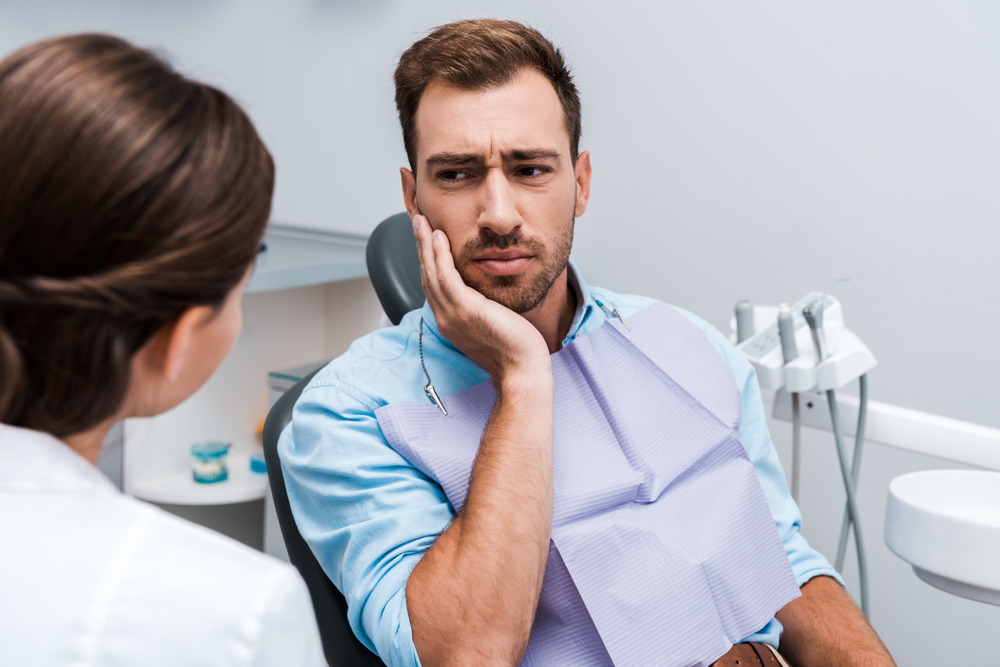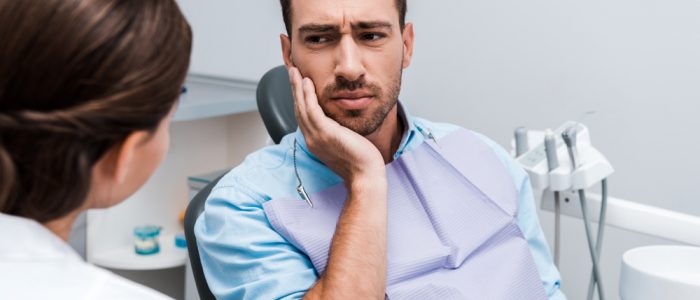Should You Smoke After a Filling?

Dental fillings are a common procedure used to restore teeth damaged by cavities or decay.
If you’re a smoker who’s just received a filling or need one soon, you probably wonder how smoking can impact oral health.
Smoking harms overall health, but what about its effect on dental fillings?
The Immediate Aftermath
Immediately after getting a dental filling, it’s advisable to avoid smoking.
Dental fillings require time to set and bond with your natural tooth structure. Smoking, particularly cigarettes, exposes your mouth to harmful chemicals, such as nicotine and tar, which can interfere with healing. These substances can lead to complications like infection or delayed healing.
Smoking is also a cause of stained teeth. The chemicals in tobacco smoke can quickly discolor your teeth, and this effect may be more pronounced on recently filled teeth since the filling material is still setting.
Related Post: How Long Does Teeth Whitening Last?
Stains on your dental fillings can be challenging to remove and may require professional teeth cleaning.
Long-Term Impacts of Smoking
Beyond the immediate issues, smoking can have more severe consequences for your dental fillings and overall oral health:
Increased risk of decay: Smoking is a known risk factor for gum disease, which can increase your susceptibility to tooth decay. When your gums are unhealthy, they can recede, exposing the tooth roots to bacteria and making them more vulnerable to cavities. Dental fillings can also break down over time if the surrounding tooth structure is compromised due to gum disease.
Related Post: Can Gum Recession be Reversed?
Reduced lifespan of fillings: Dental fillings are not invincible. Smoking can accelerate the degradation of dental fillings, leading to premature failure. The chemicals in tobacco smoke can weaken the bond between the filling material and your natural tooth, causing the filling to become loose or fall out altogether.
Oral cancer risk: Smoking is a leading cause of oral cancer. While this is not directly related to dental fillings, it underscores the importance of overall oral health. Regular dental check-ups are essential, and if you smoke, your dentist can monitor your oral health closely for any signs of abnormalities.
Complications in future dental procedures: Smoking can increase the risk of complications during future dental procedures. If you continue to smoke after getting a dental filling, you may require more dental work in the future, such as replacements or repairs.
Your Smile Benefits From Quitting Smoking
Considering the potential harm smoking can cause to your dental fillings and oral health, quitting smoking is highly recommended.
Related Post: Types of Dental Fillings Explained
Quitting allows your body to heal more effectively. Your dental fillings will have a better chance of bonding securely with your natural tooth structure, reducing the risk of complications.
Choosing to stop smoking cigarettes also lowers the risk of developing gum disease and tooth decay. Dental fillings will likely last their expected lifespan in a healthier oral environment.
Another benefit is the potential for whiter teeth. Your teeth will be less prone to staining, and you may notice improvements in your smile’s appearance.
Even beyond oral health, quitting smoking has numerous health benefits, like reducing the risk of heart disease, stroke, and various cancers. It can lead to a longer, healthier life.
Schedule Your Filling at Northside Dental
The long-term impact of smoking on dental fillings is significant.
The team at Northside Dental Clinic can provide guidance and support on maintaining a healthy smile. Get in contact with us online, or give us a call at (417) 862-2468.
If you’ve recently had a dental filling or need one, it’s an excellent opportunity to reevaluate your smoking habit. Quitting can significantly improve your oral health and extend the longevity of your dental fillings.

